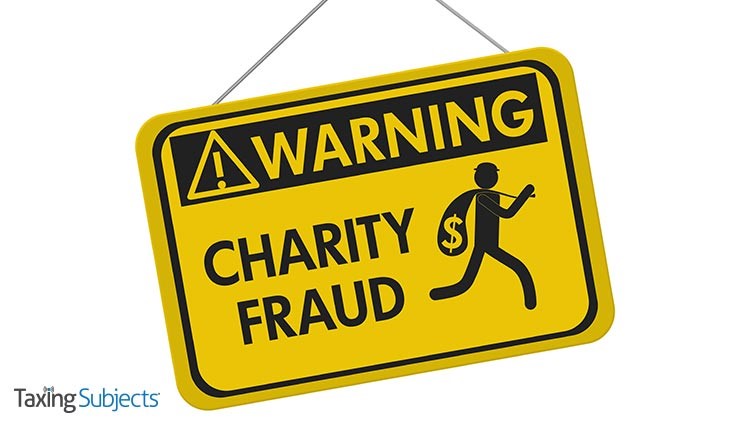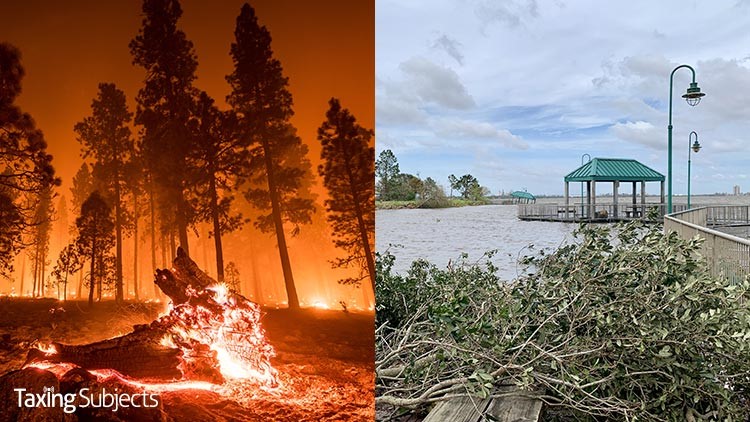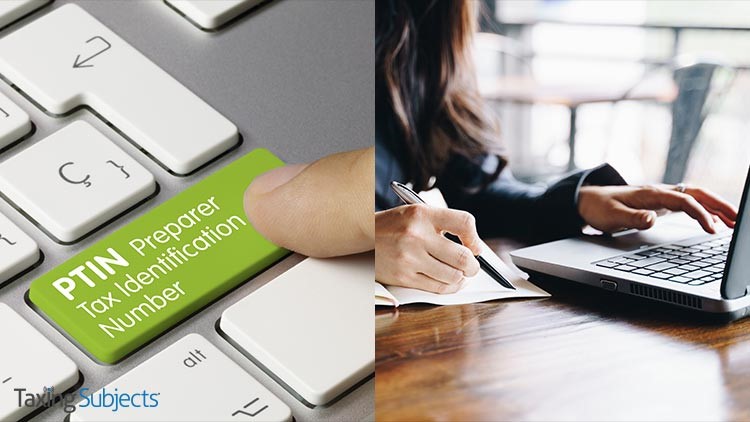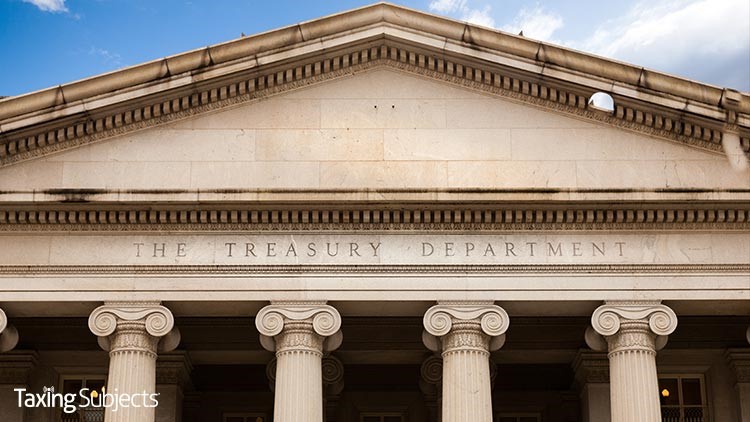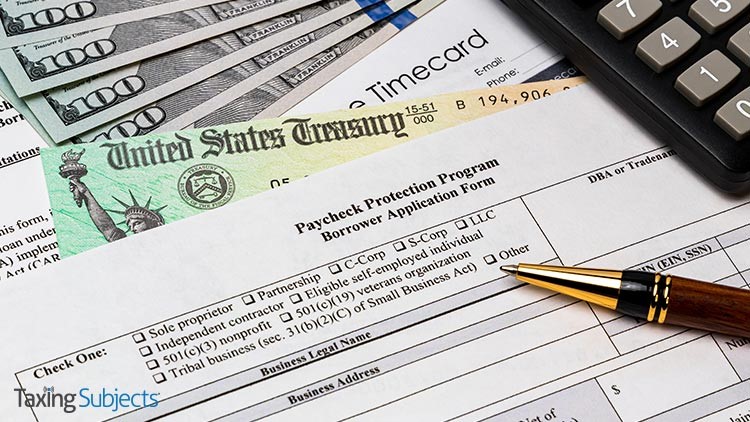by The Tax Place | Oct 22, 2020 | Tax Tips and News
This week has been set aside by the Internal Revenue Service and charitable organizations across the globe to highlight their annual International Charity Fraud Awareness Week (ICFAW).
The week brings together those in the charity and not-for-profit circles to raise awareness of good practices for tackling fraud and cybercrime—and to encourage sharing of those practices. The activities run through Oct. 23.
The award-winning campaign is led by a coalition of more than 40 charities, regulators, law enforcement agencies, representatives and other not-for-profit stakeholders. The IRS is partnering with ICFAW as part of its commitment to fight fraud against charities, businesses and individuals.
All charities are vulnerable to fraud and can be targeted by cybercriminals. Those that provide services and support local communities may be especially vulnerable to fraudsters attempting to exploit the current pandemic or weather-related disasters. More than ever, charities need to be fraud-aware and take steps to protect their money, people and assets from harm.
“Especially during these uncertain times, it’s vital for everyone to remain vigilant against fraud, identity theft, scams and schemes,” said IRS Director of Exempt Organizations and Government Entities, Margaret Von Lienen. “Cybercriminals are always on the lookout for new opportunities, and COVID-19 is just one more chance to take advantage of unsuspecting individuals and charities. This campaign provides resources that can help protect charities and other organizations.”
This year’s campaign has three core messages:
- Be fraud-aware
- Take time to check
- Keep your charity safe
Visit the ICFAW Charity Fraud Hub for helpful documents, free tutorials, videos, case studies and on-demand webinars. One featured offering is COVID-19 and charity fraud: what to watch for and how to stay safe.
Anyone interested in fighting fraud can take part in the ICFAW social media campaign using #charityfraudout.
Those encouraged to participate in the week’s activities include:
- Trustees, staff and volunteers from charities, non-government organizations, and non-profits
- Organizations that represent the interests of non-profits
- Accountants, auditors and those acting as professional advisors to non-profits
- Regulators, law enforcement officials and policymakers working to safeguard non-profits
In addition to crooks who target existing charities, those who create fake charities are a problem for the non-profit community. In fact, fake charities are once again part of the IRS’ “Dirty Dozen” tax scams for 2020. Taxpayers can find legitimate and qualified charities with the Tax Exempt Organization Search tool on IRS.gov.
Visit the Fraud Advisory Panel website to learn more about ICFAW and how to get involved.
– Story provided by TaxingSubjects.com
by The Tax Place | Oct 21, 2020 | Tax Tips and News
Taxpayers dealing with the fallout from wildfires in California and Hurricane Delta in Louisiana yesterday received some good news from the Internal Revenue Service. Following the Federal Emergency Management Agency’s disaster declarations for affected areas, the IRS is giving victims additional time to meet certain filing and payment deadlines.
What parts of California have been granted tax relief due to September wildfires?
Individuals and businesses in the following wildfire-affected California counties automatically have until January 15, 2021, to meet filing and payment deadlines that would have occurred on or after September 4, 2020:
- Fresno
- Los Angeles
- Madera
- Mendocino
- San Bernardino
- San Diego
- Siskiyou
What filing and payment deadlines in California are affected by the tax relief?
Deadlines beginning September 4, 2020, for individuals and businesses in affected California counties will be pushed back to January 15, 2021, including:*
- September 15, 2020 quarterly estimated income tax payment deadline
- October 15, 2020, individual tax return extension deadline
- October 15, 2020, calendar-year corporation extension deadline
- November 2, 2020 quarterly payroll and excise tax return deadline
- November 16, 2020, calendar-year tax-exempt organization extension deadline
As with other disaster-related tax relief, this list could grow, and affected taxpayers will not need to contact the IRS to receive updated filing and payment deadlines. Further, this tax relief also helps taxpayers who owe “penalties on payroll and excise tax deposits due on or after September 4 and before September 21.” If taxpayers in affected California counties make a deposit by September 21, 2020, the penalty will be abated.
That said, the IRS explains there are edge cases: “If an affected taxpayer receives a late filing or late payment penalty notice from the IRS that has an original or extended filing, payment, or deposit due date falling within the postponement period, the taxpayer should call the number on the notice to have the penalty abated.”
The IRS also notes that “this relief is separate from that provided for the California wildfires that began on August 14,” directing taxpayers interested in more information about that tax relief to the announcement made on August 26.
What parts of Louisiana have been granted tax relief due to Hurricane Delta?
Individuals and businesses in the following hurricane-affected Louisiana parishes automatically have until February 16, 2021, to meet filing and payment deadlines that would have occurred on or after October 6, 2020:*
- Acadia
- Calcasieu
- Cameron
- Jefferson Davis
- Vermilion
If any of the included parishes were previously granted tax relief due to Hurricane Laura, they will now benefit from the updated filing and payment deadline.
What filing and payment deadlines in Louisiana are affected by the tax relief?
Deadlines beginning on October 6, 2020, for individuals and businesses in affected Louisiana parishes will be pushed back to February 16, 2021, including:
- October 15, 2020, individual tax return extension deadline
- October 15, 2020, calendar-year corporation extension deadline
- November 2, 2020, quarterly payroll and excise tax return deadline
- November 16, 2020, calendar-year tax-exempt organization extension deadline
- January 15, 2021, quarterly estimated income tax payments
- February 1, 2021, quarterly payroll and excise tax return deadline
Like the California tax relief, taxpayers will have certain penalties abated if they make a payment by the designated date. Louisianans living in affected areas with “penalties on payroll and excise tax deposits due on or after October 6 and before October 21, will [have those penalties] abated as long as the deposits are made by October 21, 2020.”
What deadlines are not affected by the tax relief for disaster victims in California and Louisiana?
Deadlines that occurred before the dates indicated in the IRS press releases are not affected by this tax relief, including—importantly—the July 15 tax payment deadline.
* These lists of affected deadlines are not exhaustive. Check the “Disaster Assistance and Emergency Relief for Individuals and Businesses” page on IRS.gov for links to more details.
Sources: IR-2020-236; IR-2020-237
– Story provided by TaxingSubjects.com
by The Tax Place | Oct 20, 2020 | Tax Tips and News
The Internal Revenue Service Return Preparer’s Office is reminding tax professionals about the PTIN renewal deadline and Annual Filing Season Program perks. According to the Friday IRS newsletter, the RPO is set to send two separate messages: one to all current PTIN holders, and another to all non-credentialed PTIN holders.
What does the RPO say about renewing a PTIN?
The PTIN message directs users to IRS.gov/PTIN to start the renewal process before the December 31, 2020 application deadline. At the time of writing, we were unable to reach that web page, but the current renewal page—RPR.IRS.gov—is active. The RPO also reminds PTIN holders that renewal will now require a non-refundable $35.95 fee, a change we covered back in April.
Returning users sign in with their user ID and password, complete the renewal application, then pay the fee with an accepted method:
- Credit card
- Debit card
- ATM card
- eCheck
The RPO says that users who forget their login information should use the “Forgot User ID” and “Forgot Password” tools. On the current page, you can also click “Forgot or cannot access email?” to update the email tied to your PTIN account.
What does the RPO say about the Annual Filing Season Program?
The RPO explains that the Annual Filing Season Program is a “voluntary program … for non-credentialed return preparers who aspire to a higher of professionalism,” and it requires completion of “15 or 18 hours of continuing education in specific categories … [before] December 31, 2020” from “IRS-approved CE providers.”
While learning more about tax preparation will help you better serve clients, completion of the AFSP confers the Annual Filing Season Program Record of Completion and grants limited representation rights for clients whose returns you prepared and signed.
You will also be listed in the IRS Directory of Federal Tax Preparers with Credentials and Select Qualifications, “a searchable database that includes the names, city, state, ZIP code, and credentials of all current year Annual Filing Season Program participants, enrolled agents, attorneys, CPAs, enrolled retirement plan agents, and enrolled actuaries with a valid PTIN.”
Does Drake Software offer AFSP courses?
Visit DrakeCPE.com to sign up for e-learning-based continuing professional education courses required for completing Annual Filing Season Program requirements and more!
Drake Software is an IRS-approved continuing professional education provider that is registered with the National Association of State Boards of Accountancy and Texas State Board of Public Accountancy and approved by the California Tax Education Council.
Sources: IRS e-News for Tax Professionals 2020-42; DrakeCPE.com
– Story provided by TaxingSubjects.com
by The Tax Place | Oct 16, 2020 | Tax Tips and News
The Internal Revenue Service says its Affordable Care Act Information Returns system—also known as AIR—will be unavailable over the weekend while maintenance is carried out.
Under the Affordable Care Act (ACA), insurance companies, self-insured companies, and large businesses and businesses that provide health insurance to their employees must submit information returns to the IRS reporting on individual’s health insurance coverage. Users are required to file electronically if submitting 250 or more information returns.
The IRS warns the AIR system, which is used by software developers, employers, insurance issuers or carriers, government agencies and some third parties to file information returns relating to the Affordable Care Act.
The system will be unavailable from 10 a.m. EST on Saturday, Oct. 17 until 3 p.m. EST.
During that time, users are asked not to attempt to access the Application to Application (A2A) or the User Interface (UI) Channels for the duration of the maintenance period.
The information returns affected by this maintenance outage include:
- Form 1094-B, Transmittal of Health Coverage Information Returns
- Form 1095-B, Health Coverage
- Form 1094-C, Transmittal of Employer-Provided Health Insurance Offer and Coverage Information Returns
- Form 1095-C, Employer-Provided Health Insurance Offer and Coverage
The IRS apologizes for any inconvenience the maintenance outage may cause.
Source: IRS QuickAlerts for Electronic ACA Information Returns
– Story provided by TaxingSubjects.com
by The Tax Place | Oct 16, 2020 | Tax Tips and News
The Treasury Department last week announced that the Small Business Administration is making it easier to request Paycheck Protection Program (PPP) loan forgiveness for loans that are $50,000 or less.
What is the Paycheck Protection Program?
The Paycheck Protection Program was created by the Coronavirus Aid, Relief, and Economic Security (CARES) Act of 2020 to help businesses keep employees on the payroll amid state-wide shutdowns, occupancy restrictions, reduced customer foot traffic, and other hardships arising from the pandemic. While the SBA stopped accepting applications for new PPP loans in August, businesses can still request loan forgiveness.
“The loan will be fully forgiven if the funds are used for payroll costs, interest on mortgages, rent, and utilities (due to likely high subscription, at least 60% of the forgiven loan must have been used for payroll),” the SBA explains on its “Paycheck Protection Program” webpage. If a business doesn’t keep (or rehire) employees at their current salary levels for the period prescribed by the program, the amount forgiven will be reduced.
According to the Treasury release, small businesses with a loan totaling $50,000 or less can use the new, simpler application to request loan forgiveness.
Where can I find the simpler PPP loan forgiveness application?
Treasury includes links to the new form, its instructions, and an Interim Final Rule:
In addition to helping businesses more easily apply for loan forgiveness, Treasury says, “SBA and Treasury have also eased the burden on PPP lenders, allowing lenders to process forgiveness more swiftly.”
Source: Paycheck Protection Program; SBA and Treasury Announce Simpler PPP Forgiveness for Loans of $50,000 or Less
– Story provided by TaxingSubjects.com
